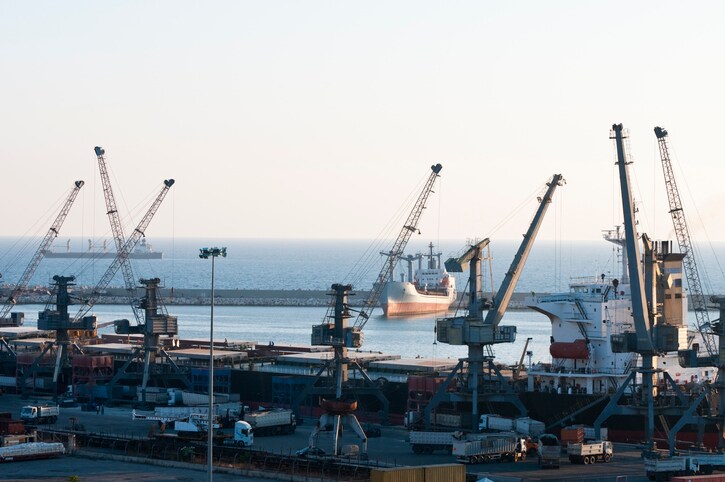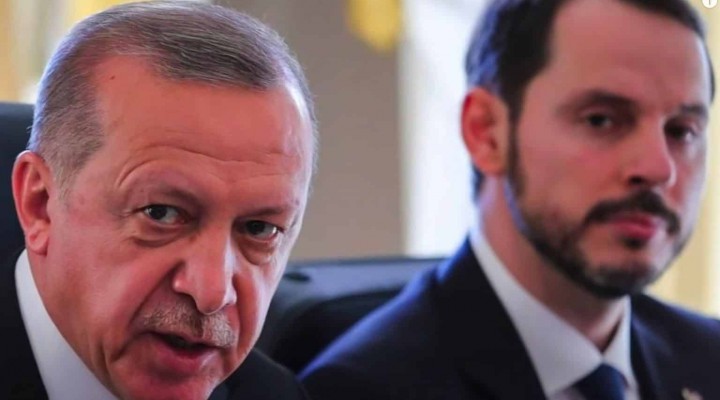 Recently, Turkish Customs teams confiscated more than a ton of Captagon drug pills at the Mediterranean port of Iskenderun in southern Turkey. It was reported to be the biggest seizure of its kind with a total of 1,072 kilograms (2,000 pounds) of Captagon drugs — more than 6.2 million pills — seized during a search by customs officials. The contraband, worth over $37 million, was found hidden in 17 containers brought to the port for transit to the United Arab Emirates.
Recently, Turkish Customs teams confiscated more than a ton of Captagon drug pills at the Mediterranean port of Iskenderun in southern Turkey. It was reported to be the biggest seizure of its kind with a total of 1,072 kilograms (2,000 pounds) of Captagon drugs — more than 6.2 million pills — seized during a search by customs officials. The contraband, worth over $37 million, was found hidden in 17 containers brought to the port for transit to the United Arab Emirates.
The National Library of Medicine, National Center for Biotechnology Information, notes that Captagon is the trademark name for the synthetic stimulant fenethylline hydrochloride, which is a central nervous system stimulant with euphoric and analgesic properties and currently does not have an accepted medical use in the United States. Fenethylline is a “DEA Schedule I controlled substance.
Substances in the DEA Schedule I have no currently accepted medical use in the United States, a lack of accepted safety for use under medical supervision, and a high potential for abuse.” Even worse…
“Counterfeit versions marked with the Captagon logo are widely available across the Arabian peninsula and do not contain fenethylline hydrochloride itself due to low stocks of diverted fenethylline and the sporadic availability of precursor chemicals for clandestine synthesis. However, these pills contain other easily produced amphetamines and amphetamine derivatives capable of inducing similar effects….
When Captagon is used in military combat soldiers feel euphoric, fearless and powerful, can remain awake for days and kill in a numb and reckless manner.”
The 17 containers were filled with stones typically used for decoration purposes. Narcotics detection dogs inspecting the cargo reacted to the stones and aroused the suspicions of Customs officials. Stones that were suspected of containing drugs were broken and were found to have hidden transparent packages filled with narcotics pills.
Customs Officials took several samples from different containers and stones, analyzed them with a handheld material identification devices, and all the results indicated Captagon.
The handheld integrated Raman and FTIRspectroscopy instruments that were used are capable of identifying more than 14,500 individual substances, solids and liquids from narcotics to explosives and chemical warfare agents to industrial chemicals and precursors. Utilizing these handheld material identification devices, agents are quickly able to successfully identify – within minutes – unknown substances including mixtures of up to four components.
The Raman technology enables a user to conduct non-contact and non-destructive analysis of samples in transparent and translucent containers without the need to open them and manipulate each sample, thus increasing user safety. Conversely, although FTIR spectroscopy requires direct contact analysis, it is more efficient and safer when identifying dark-colored substances such as black tar heroin.
It also has fewer chemical limitations and performs better on substances that suffer from very high levels of fluorescence, which sometimes obscures Raman spectra. Both technologies thus complement each other as well as confirm results obtained by each other.
The results were telling. Counterfeit versions of Captagon are very popular in the Middle East, especially in Syria, where its fear-inhibiting and stimulating effects have also proved useful during protracted firefights in war-torn areas. This seizure occurred in a region that is very close to the Syrian border.
As illicit drugs continue to proliferate and synthetic drugs ‘morph’ into formulations more difficult to detect, hope for stemming the flow of them across international borders will depend upon advanced analyzer technologies that can change as fast, or even faster, than the chemistries involved.
In Turkey, as in many other global hot spots for drug manufacture and smuggling, Customs and drug interdiction agents had been using traditional narcotics test kits, but those kits are effective against a very limited range of narcotics.
Agents using these kits couldn’t identify most of the narcotics they seized, so they were sending the samples to a lab and waiting for 2-3 days for the results, an unacceptable delay.
These latest material identification devices that use both Raman and FTIR technology and have an extensive library that can be constantly updated and means agents are on the cutting edge and ahead of the game. For more details about Turkey’s campaign against drugs entering their borders, read the case study Turkey at the Crossroads; Targeting illicit drug traffic.

Resources:
- Case Study: Turkey at the Crossroads; Targeting illicit drug traffic
- Online information: Threat Identification for Customs and Border
https://www.veteranstoday.com/2021/12/05/intel-drop-vt-exposes-turkey-israel-and-the-ny-times-for-complicity-in-narcotics-trade-in-syria/
 TheAltWorld
TheAltWorld 



0 thoughts on “Intel Drop: VT Exposes Turkey, Israel and the NY Times for Complicity in Narcotics Trade in Syria”